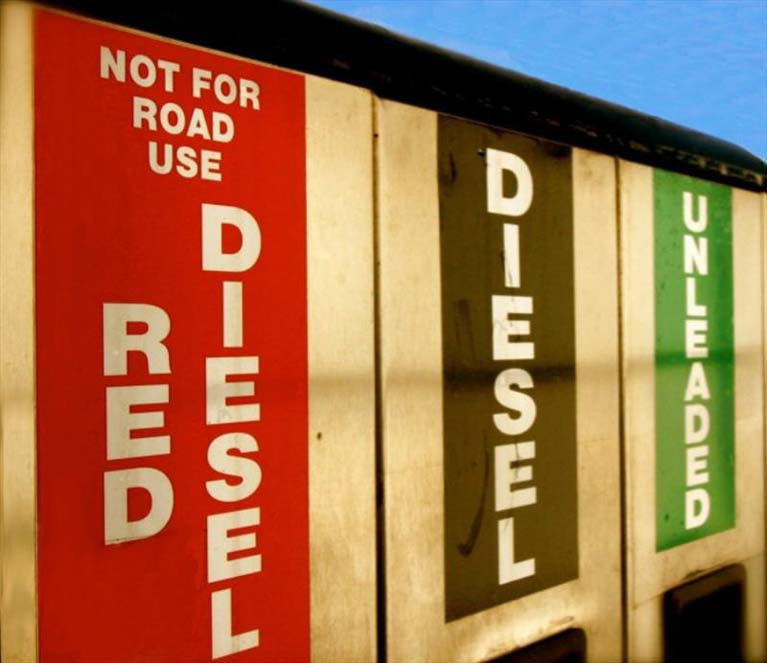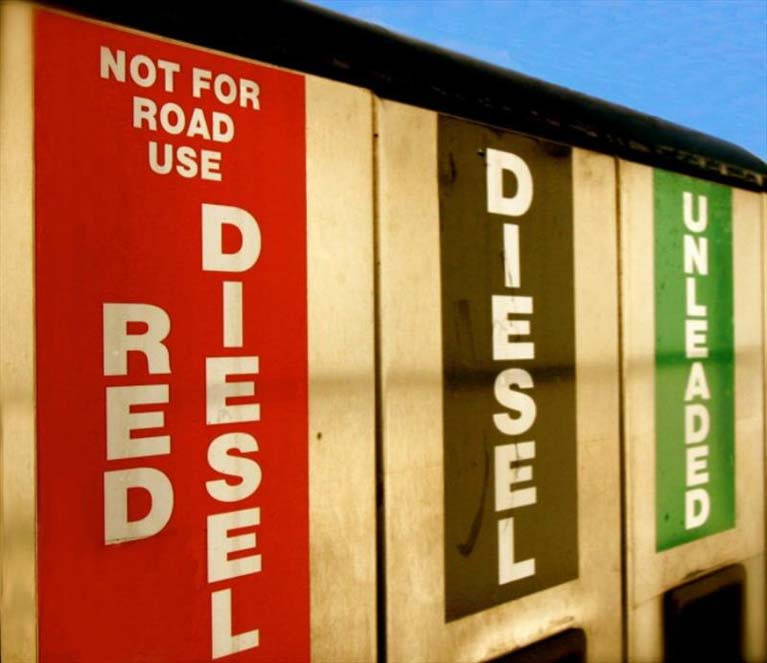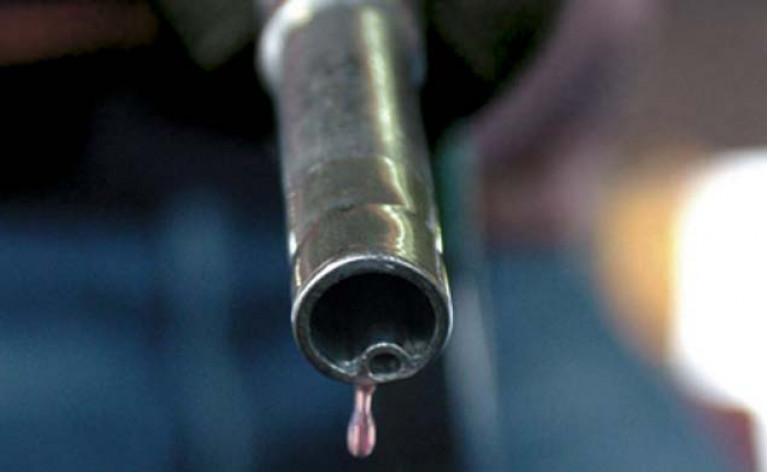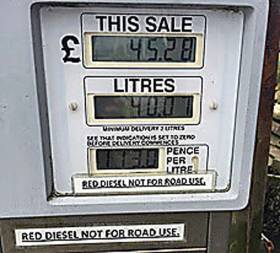Displaying items by tag: red diesel
RYA Urges Engagement With UK Red Diesel Consultation
The British Government has launched its long-anticipated consultation with red diesel users across the UK, including Northern Ireland, following the news of plans to restrict the fuel’s usage from 2022.
This past April the UK’s Cruising Association confirmed Westminster’s intention to legislate for a ban on the use of subsidised dyed or ‘red’ diesel except for agriculture, railway and non-commercial heating.
The move is being touted as a way to tackle climate change by giving businesses an incentive to improve their energy efficiency.
But it would also bring the UK into line with EU regulations, as has Ireland’s own ban on green diesel use for cruising and leisure boating which came into force at the start of this year.
The HMRC consultation, which is open until Thursday 1 October, will seek the input of recreational boaters, among others, to determine whether they and other sectors should be allowed to maintain use of red diesel beyond April 2022.
The UK’s Royal Yachting Association (RYA) insists that it backs efforts to increase energy efficiency in the short-term and to strive towards a zero-carbon future.
However, it also makes the case for retaining red diesel based on “existing supply needs, not colour, tax status or price”.
The RYA says: “Recreational boaters already pay the full rate of duty and VAT when purchasing fuel for the purposes of propulsion.
“We will therefore be looking at the proposals to reform the tax treatment of red diesel closely to see how this might affect the supply of fuel for recreational use for both propulsion and how it will impact supply for domestic usage such as heating.
“It is a fact that the further west and north you travel in the UK, the more likely it is that you will have to rely on waterside outlets that only supply red diesel for commercial purposes, such as to fishing fleets.
“In many places, some remote, the limited quantities of fuel used by recreational craft do not warrant the cost of installing additional equipment to supply white diesel for the recreational boating sector.
“If the Government removes the entitlement to use red diesel from most sectors from April 2022 and white diesel is then made as widely available as red diesel is now, then supply of fuel will not be affected.
“The RYA will be responding to this call for evidence and urges any members with an interest in red diesel to participate in the consultation.”
UK’s Cruising Association Confirms Proposals For Dyed Diesel Ban On Private Pleasure Craft
The UK’s Cruising Association (CA) says it has confirmed with HM Revenue & Customs that it is their intention to legislate that dyed or ‘red’ diesel can only be used for agriculture, railways and non-commercial heating from April 2022.
This move would be in line with EU regulations and follows Ireland’s own ban on green diesel use for leisure boating that came into force at the start of this year.
The CA’s Regulations and Technical Services group (RATS) also confirms that the duty on standard white diesel for boats will be the same as the full rate paid on white road diesel in the UK.
This means that the present so called '60/40' fuel duty split will disappear — but commercial vessels, such as fishing boats, will still be able to claim a rebate on the full rate through their Marine Voyages Relief scheme.
But the HMRC says it is exploring the possibility of introducing a scheme that allows private pleasure craft to pay only the current lower rate for red diesel non-propulsion uses.
The CA says it “welcomes the clarification on the use of white diesel which should make it more conveniently available throughout the United Kingdom from marinas and ports as they will have to supply all marine vessels with one colour of diesel”.
The “bonus” of such a situation would be that boaters fulfil the SOLAS V regulations for sea voyages and “no longer have the concern of the presence of red diesel in their tanks when visiting EU maritime states”.
A public consultation will deal all issues involved in the proposed legislative change but there is no timetable for this amid the current Covid-19 pandemic.
A spokesperson for the CA’s RATS group says private pleasure craft from the UK should continue to legally use red diesel as they currently do, since it is still the only easily available diesel fuel at home marinas. The CA’s current advice on using dyed diesel wen visiting the EU is available HERE.
Red Diesel Subsidy Removal “Disappointing” says British Marine
Yesterday the Chancellor of the Exchequer, the Rt Hon Rishi Sunak MP, delivered his first Budget setting out the UK Government’s fiscal priorities. Speaking to MPs in the House of Commons, he pledged greater funding and resources for the NHS to help it manage the COVID-19 outbreak. This pledge was accompanied by a bold and comprehensive package worth £30bn designed to support businesses through what the Chancellor described as a “tough” but temporary period.
Setting out the Government’s economic response, the Chancellor outlined his three-point plan to manage the impact of the virus. The first part is to ensure the NHS is given “whatever resources it needs” to cope with the spread of COVID-19. The second part includes changes to Statutory Sick Pay, including those entitled to receive it, and a dedicated £500m hardship fund for local authorities. Following the introduction of these measures, Statutory Sick Pay will be available to anyone advised to self-isolate. The third and final part of the plan includes measures to support businesses.
For companies with fewer than 250 members of staff, the Chancellor confirmed the Government would temporarily meet the cost of an employee being off work, for a period of up to 14 days. Other measures announced include a Coronavirus Business Interruption Loan Scheme worth over £1bn, grants for small business and a dedicated helpline for companies that require a deferral on their tax liabilities as a result of COVID-19.
HM Treasury has published specific guidance following the Budget which includes full details of the support available to businesses affected by COVID-19. British Marine would encourage its members to familiarise themselves with this guidance and will issue further updates as soon as we have more information on how those affected should go about accessing this support.
Speaking to MPs, the Chancellor then outlined changes to business rates. For the coming year, the business rates Retail Discount will be abolished and extended to businesses in the leisure and hospitality sectors, which under normal circumstances would be ineligible for this relief. This means that any eligible retail, leisure or hospitality business with a rateable value below £51,000 will, over the next financial year, pay no business rates. British Marine understands a formal review of business rates will take place in the autumn.
Much to the disappointment of British Marine, the Chancellor also announced that the subsidy on red diesel would be removed for most sectors, but would remain available for agricultural purposes, fishing and domestic heating. This follows speculations in different news outlets that the Chancellor was considering such a move. We understand the changes are not due to take affect for another two years and industry will be consulted on whether the entitlement to use red diesel and rebated biofuels is justified for any other users, including the continued use by ferries carrying paid passengers on the UK’s rivers and inland waterways, or public entertainment. Commercial boats on open waters, including ferries and fishing boats, will remain entitled to the Marine Voyages Relief so will not have to pay more for their fuel.
Commenting on the Budget, Lesley Robinson, CEO at British Marine, said: “It is particularly disappointing to see the subsidy on red diesel being removed across some sectors. This subsidy is of huge importance to our members in the recreational and small commercial boating sector which is heavily reliant on the use of red diesel to power recreational craft and many larger vessels.
“Our latest statistics show that participation in boating has increased over the last year and the UK’s leisure marine industry is thriving, all of which could be at risk if the Chancellor goes ahead with this decision and removes the subsidy for our sector.
“We understand that the Government will consult industry later this year and will be engaging closely with HM Treasury and HMRC officials to ensure our concerns and those of our members are fully represented and understood.”
'Green' Diesel Use Ends in Ireland
The use of green diesel for the propulsion of leisure craft became unlawful in the Republic of Ireland from 1 January 2020.
As Afloat previously reported, most marina fuel pumps in Ireland will only deliver fully-taxed white diesel and/or petroleum.
Below is the official Notice:
Marine Notice No. 52 of 2019
Notice to all Masters, Owners and Users of Pleasure and Recreational Craft. Prohibition on the use of marked gas oil in private pleasure craft. The [Ireland] Department of Transport, Tourism and Sport wishes to inform the public of the Department of Finance's intention to change the law regarding the use of Marked Gas Oil for Private Pleasure Navigation from 1 January 2020.
The requirement to amend the relevant legislation arises from a ruling made by the Court of Justice of the European Union in October 2018. Section 40 of the Finance Bill 2019 proposes an amendment to Chapter 1 of Part 2 of the Finance Act 1999 in order to implement the Court decision and ensure compatibility with the Energy Tax Directive (Directive 2003/96/EC) and the Fiscal Marking Directive (Directive 95/60/EC) on a legislative basis. The proposed amendment will take effect from 1 January. From that date, the use of marked gas fuel as a propellant by private pleasure craft will be prohibited.
Cruising Association Urges UK Boaters to Respond to HMRC Consultation on Red Diesel Future
In 2018 the Court of Justice of the European Union ruled that the UK should not allow private pleasure craft to continue to use red diesel. HMRC has just issued its consultation document which outlines the proposed change to white diesel for the propulsion of powered leisure craft, including inland boats. The document contains a number of questions for owners of diesel-powered craft.
The Cruising Association (CA) is now urging all UK boaters who use diesel fuel to respond directly to these questions. HMRC has made it clear that it will only accept responses from individuals, and not a compilation of responses.
Interested parties can access the full document, Implementation of the Court of Justice of the European Union judgment on diesel fuel used in private pleasure craft on the gov.uk website.
There are still some uncertainties about whether the CJEU ruling will actually be implemented in the UK, depending on the outcome of Brexit. Whatever the outcome, on behalf of CA members, RATS (the Regulations and Technical Services Committee), must make certain all the supply difficulties and all the problems of other stakeholders are properly and legally resolved during a workable transition period.
The CA is Britain's leading organisation for cruising sailors with 6,300 members.
#RedDiesel - The British Marine Federation (BMF) says it will continue to support the use of red diesel by pleasure boaters after last week's decision by the European Commission to refer the UK to the European Courts of Justice over use of the fuel.
Red-dyed agricultural diesel – like Ireland's green-dyed variety – is used by farmers and agricultural fishermen throughout the UK at a lower rate of duty and is also widely used by leisure craft owners, who have been required to pay the full rate of tax for a number of years.
The BMF says it has worked closely with the Royal Yachting Association (RYA) on the issue for many years, "working alongside the UK Government to successfully facilitate the continued use of red diesel by leisure boaters, whilst paying an appropriate level of duty."
However, two years ago the EU began a crackdown on the use of dyed diesel outside of the agricultural context, threatening to levy fines against British boats round to be using red diesel in the waters of other EU states.
This is despite arguments from the British marine industry that unmarked or 'white' diesel is not widely available in UK ports.
Commenting on this latest development, BMF chief executive Howard Pridding said: “Government officials have always understood the impact for the industry and the boating market that would arise if leisure boaters were no longer permitted to use red diesel.
"We have been in close contact with HMRC officials since the Commission’s announcement and they have indicated to us that the UK Government intends to continue to contest the infringement proceedings. Our members very much welcome their understanding of the issues and ongoing support."
The BMF adds that it will maintain regular contact with Westminster officials on the issue and assist in providing robust evidence with which the UK can make its case.
British Boat Users Sailing Abroad Risk Fines Over Red Diesel
#NEWS UPDATE - British boat users are risking big fines if they sail their craft outside UK waters due to new laws on the use of red diesel, the Daily Telegraph reports.
New laws coming into force on 1 April "will require anyone moving into international waters to sign a declaration that their boat is not being powered by red diesel".
Red-dyed diesel is used by farmers and commercial fishermen throughout the UK at a lower rate of duty. It is also widely used by recreational boaters and yacht owners, as is green diesel by Irish pleasure boaters, though such users have been required to pay the full rate of tax for a number of years now.
However, the European Union is now clamping down on the use of dyed diesel.
The decision by Brussels is causing consternation among the yachting community, which argues that unmarked or 'white' diesel is not widely available in harbours and marinas.
And concerns remain over the presence of biofuels in white diesel which, as previously reported on Afloat.ie, can be harmful to marine engines.
The Daily Telegraph has more on the story HERE.




































































